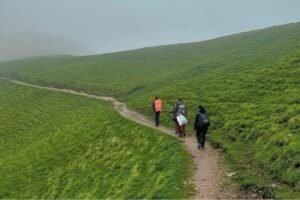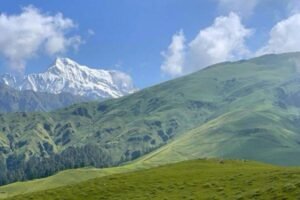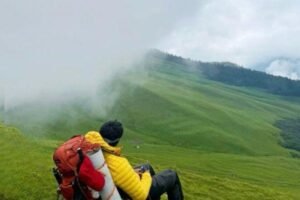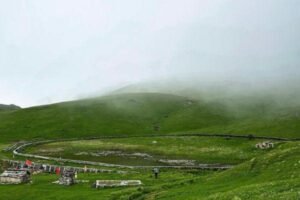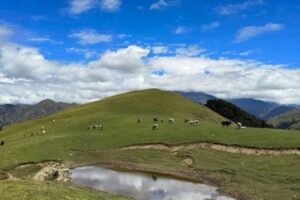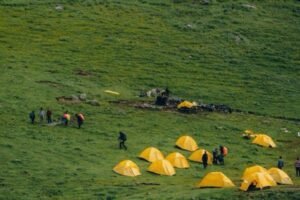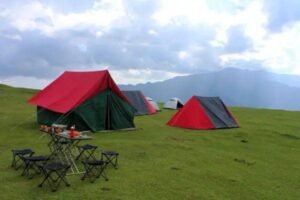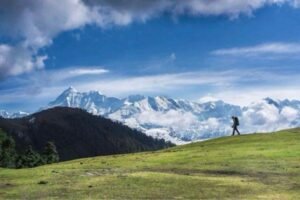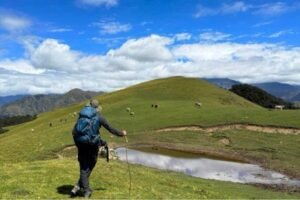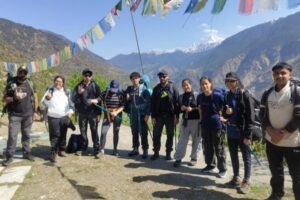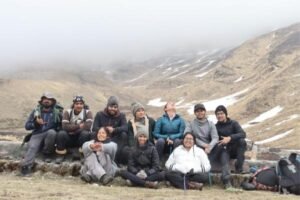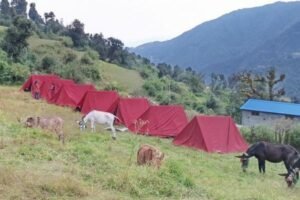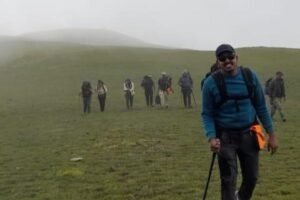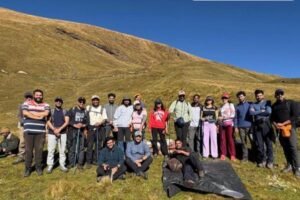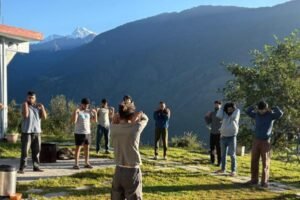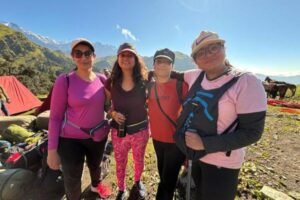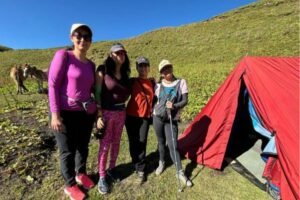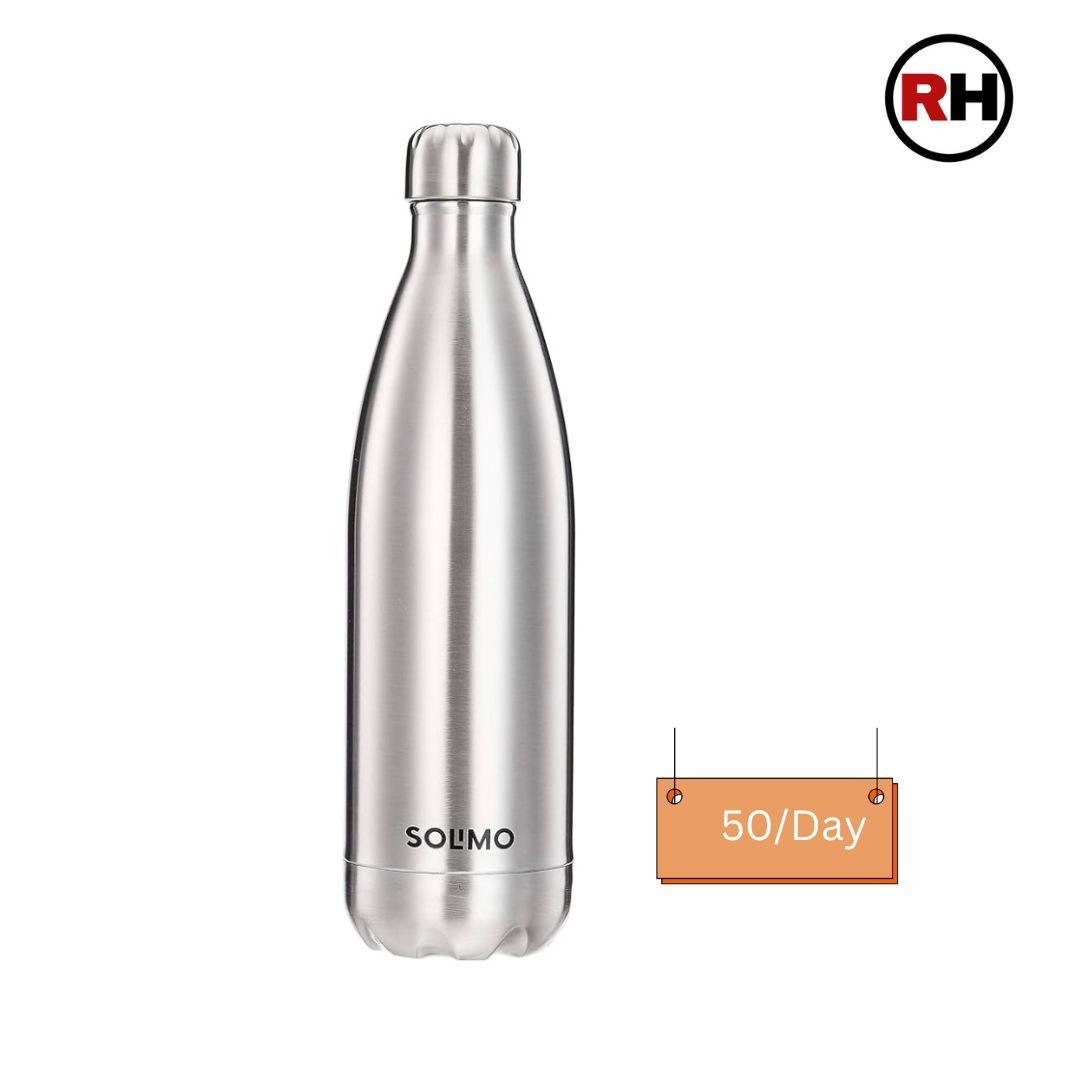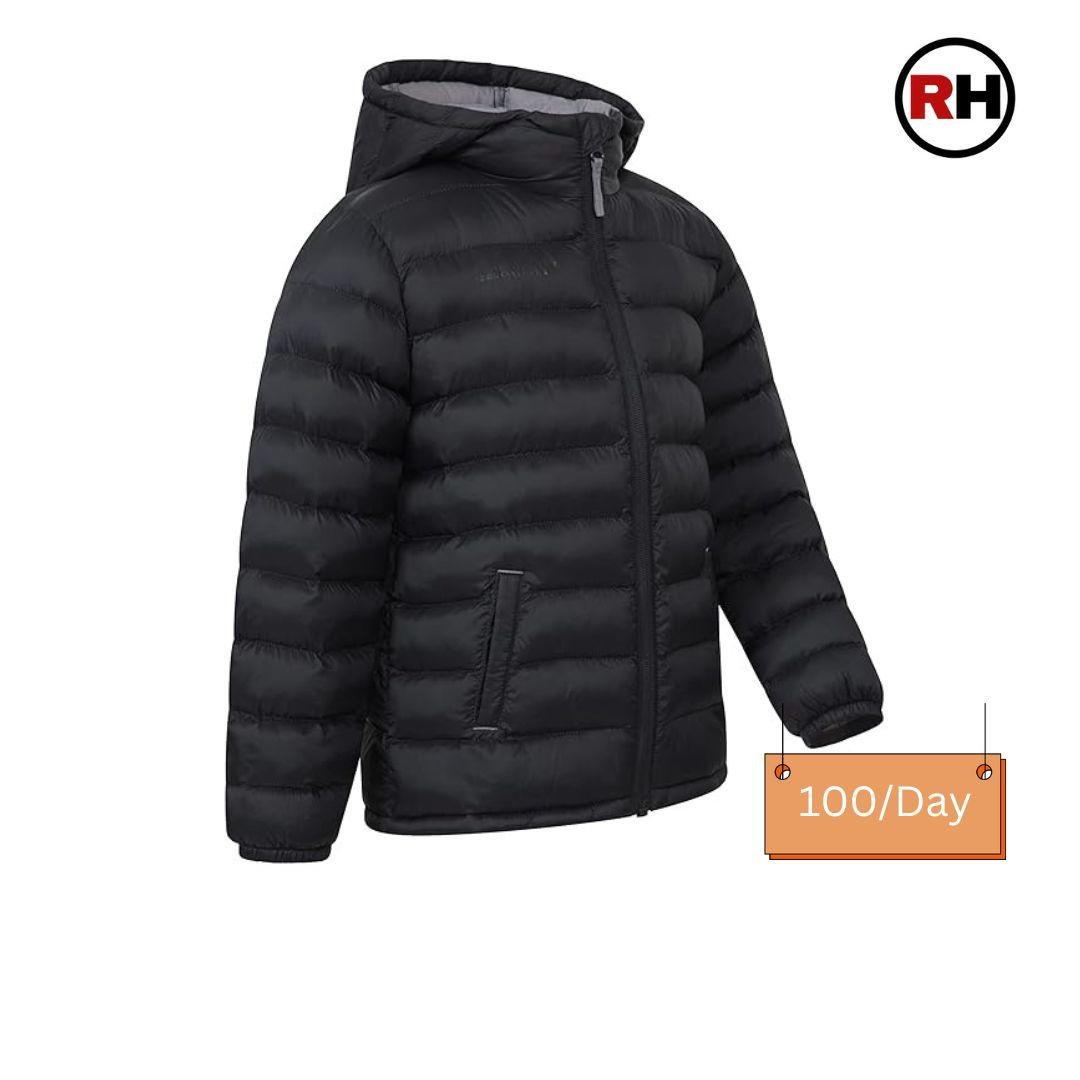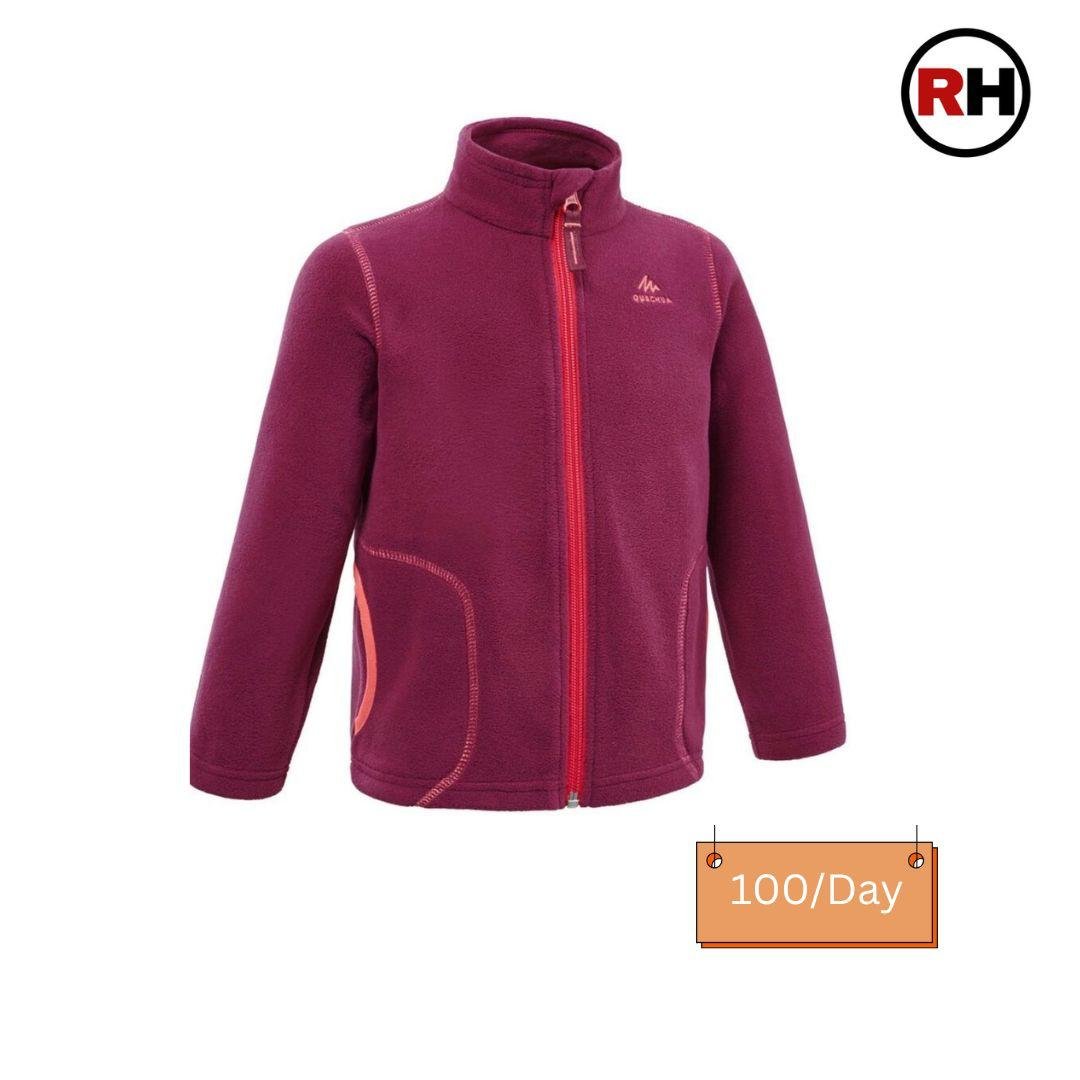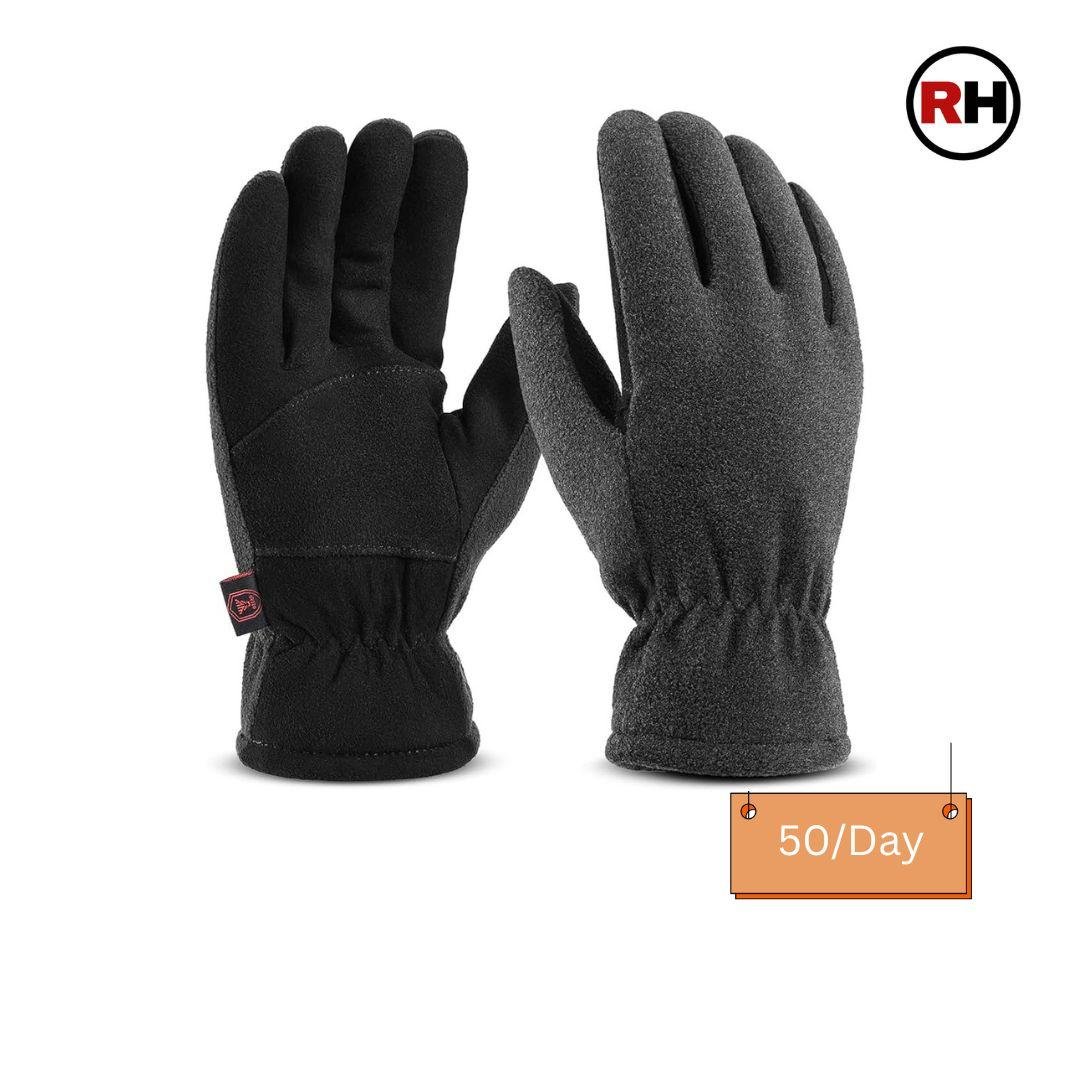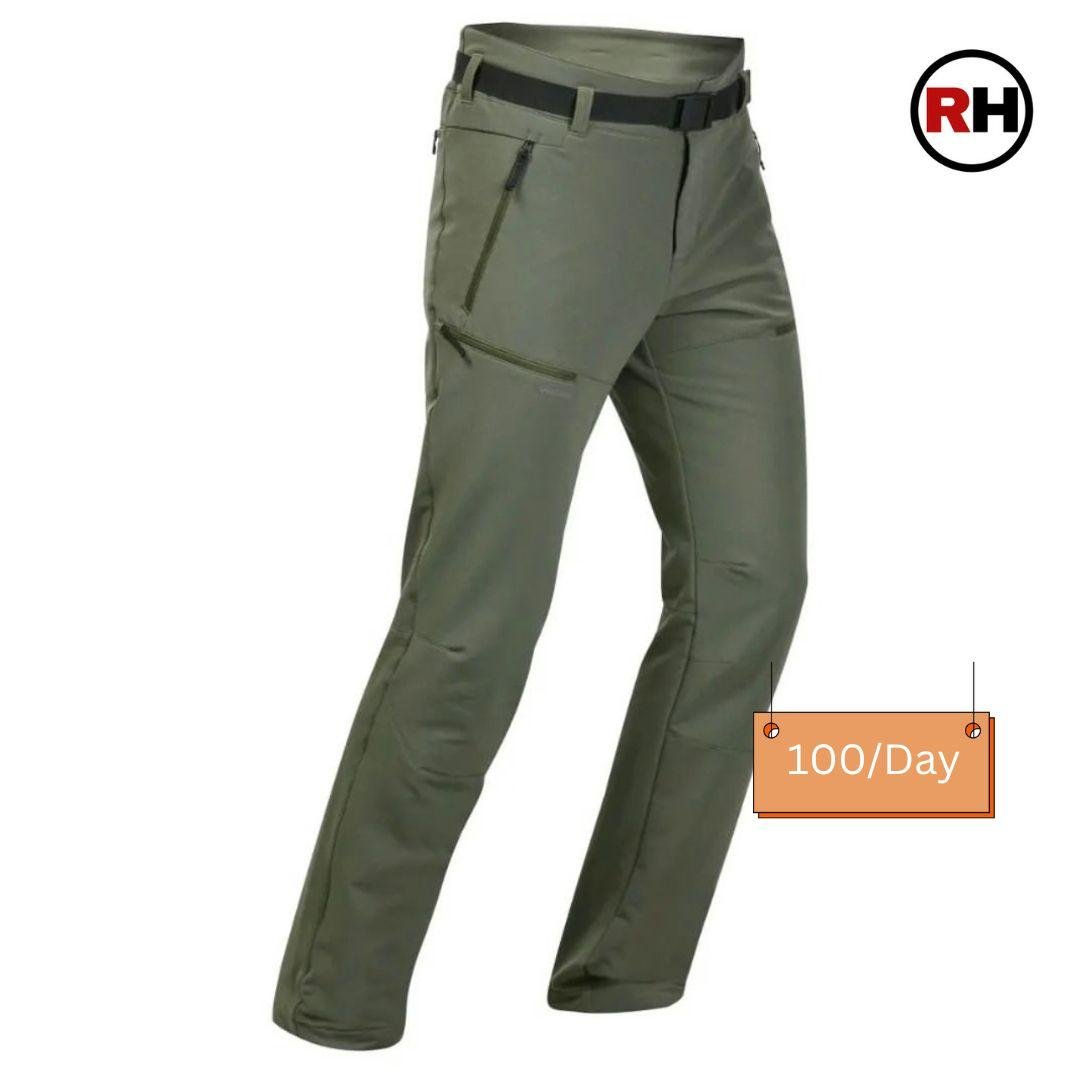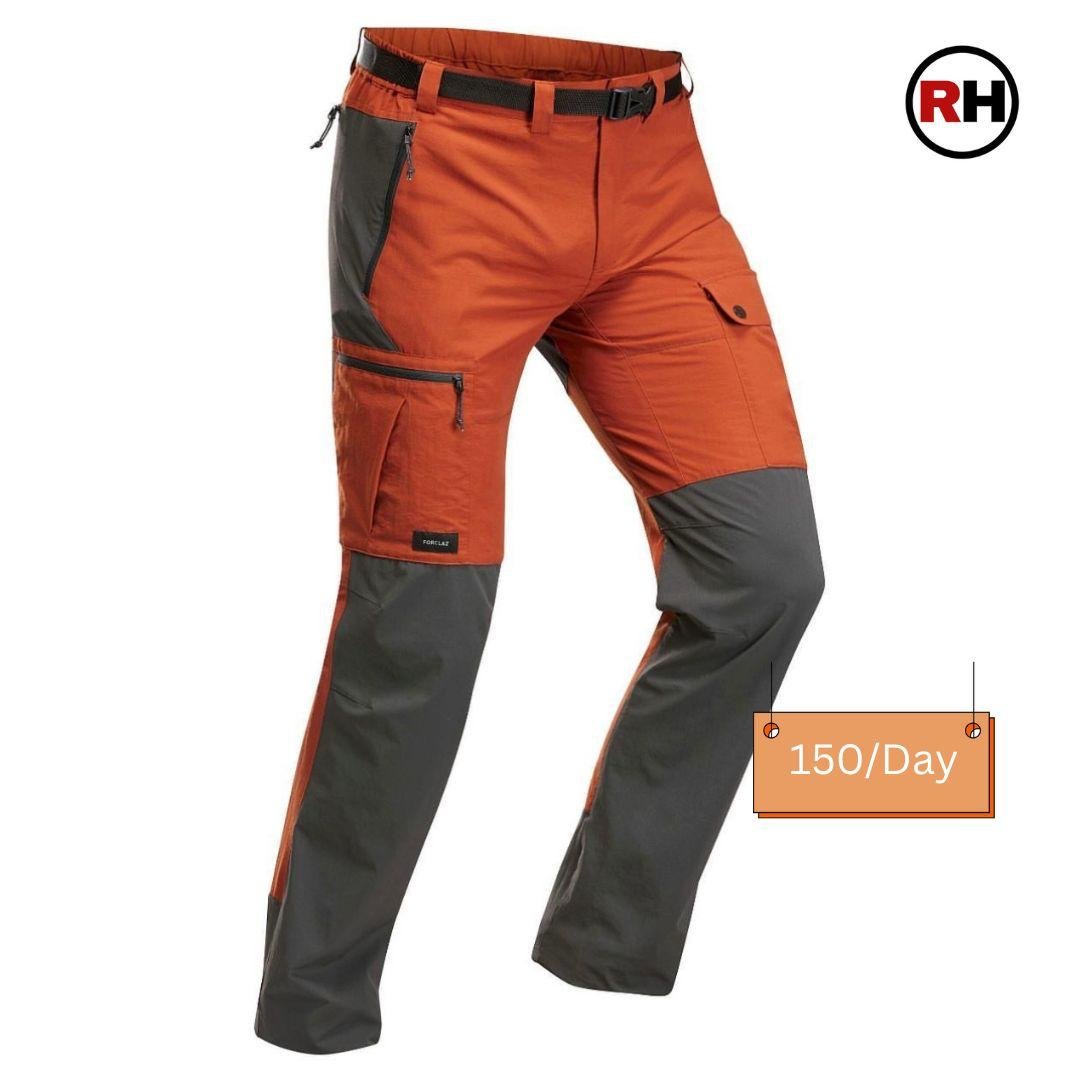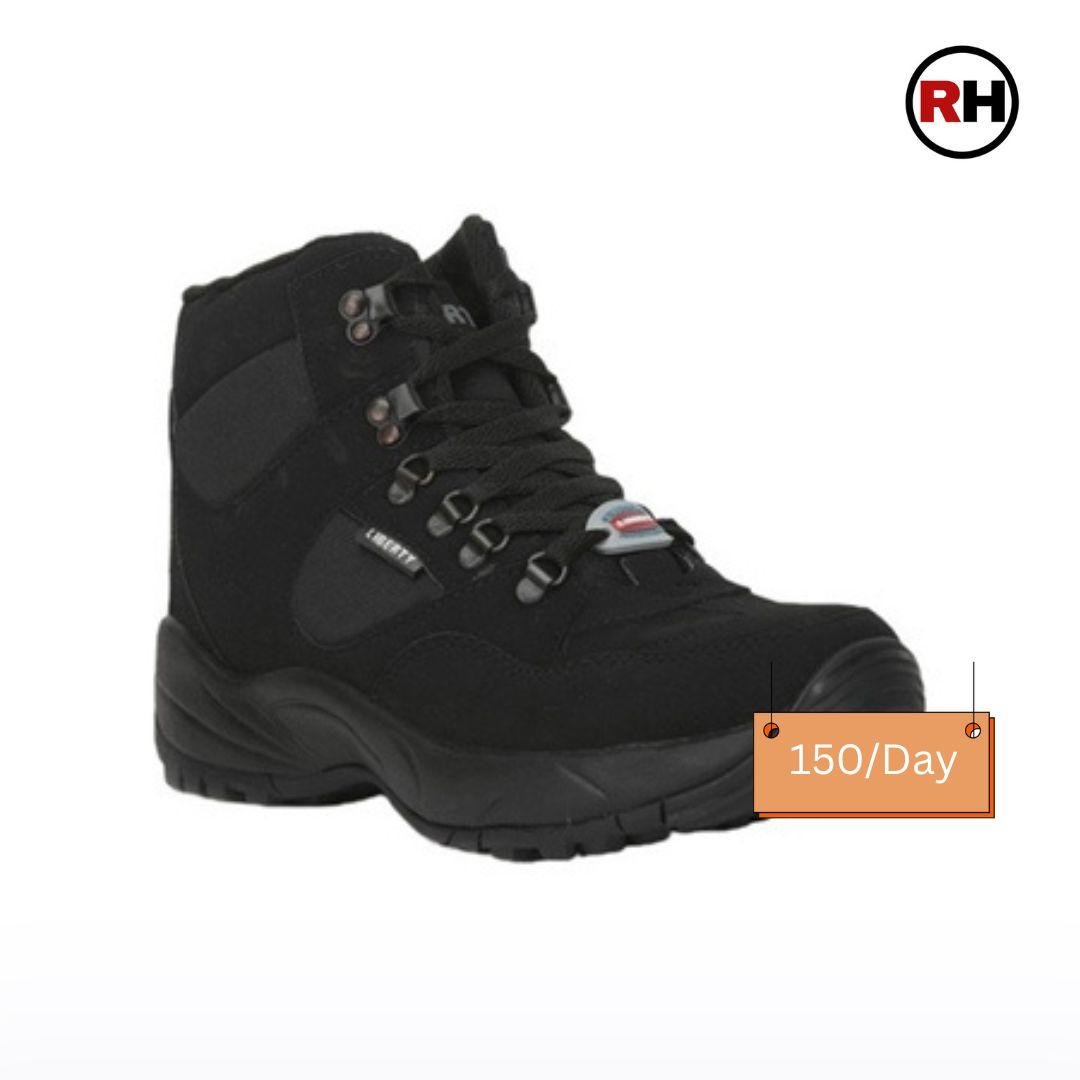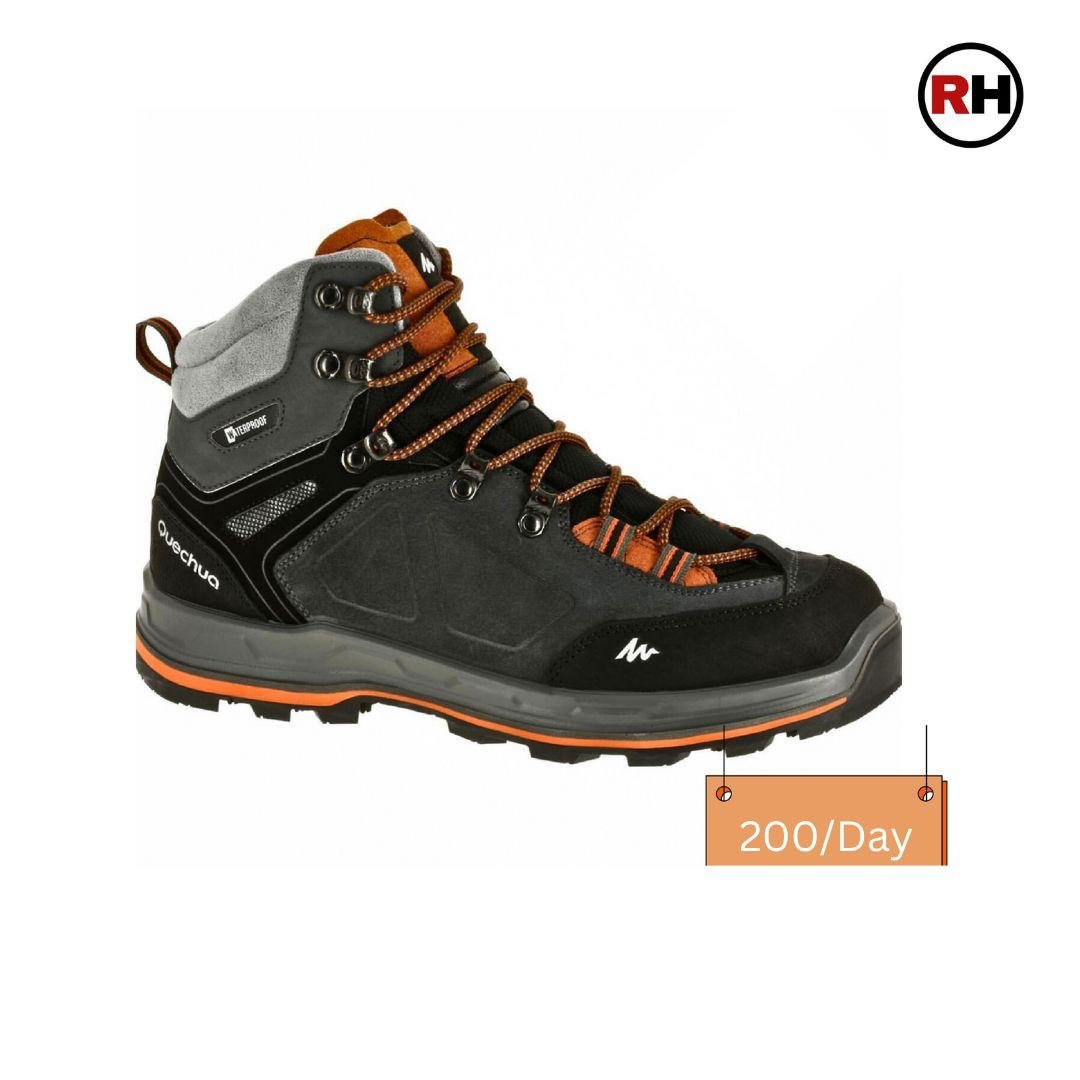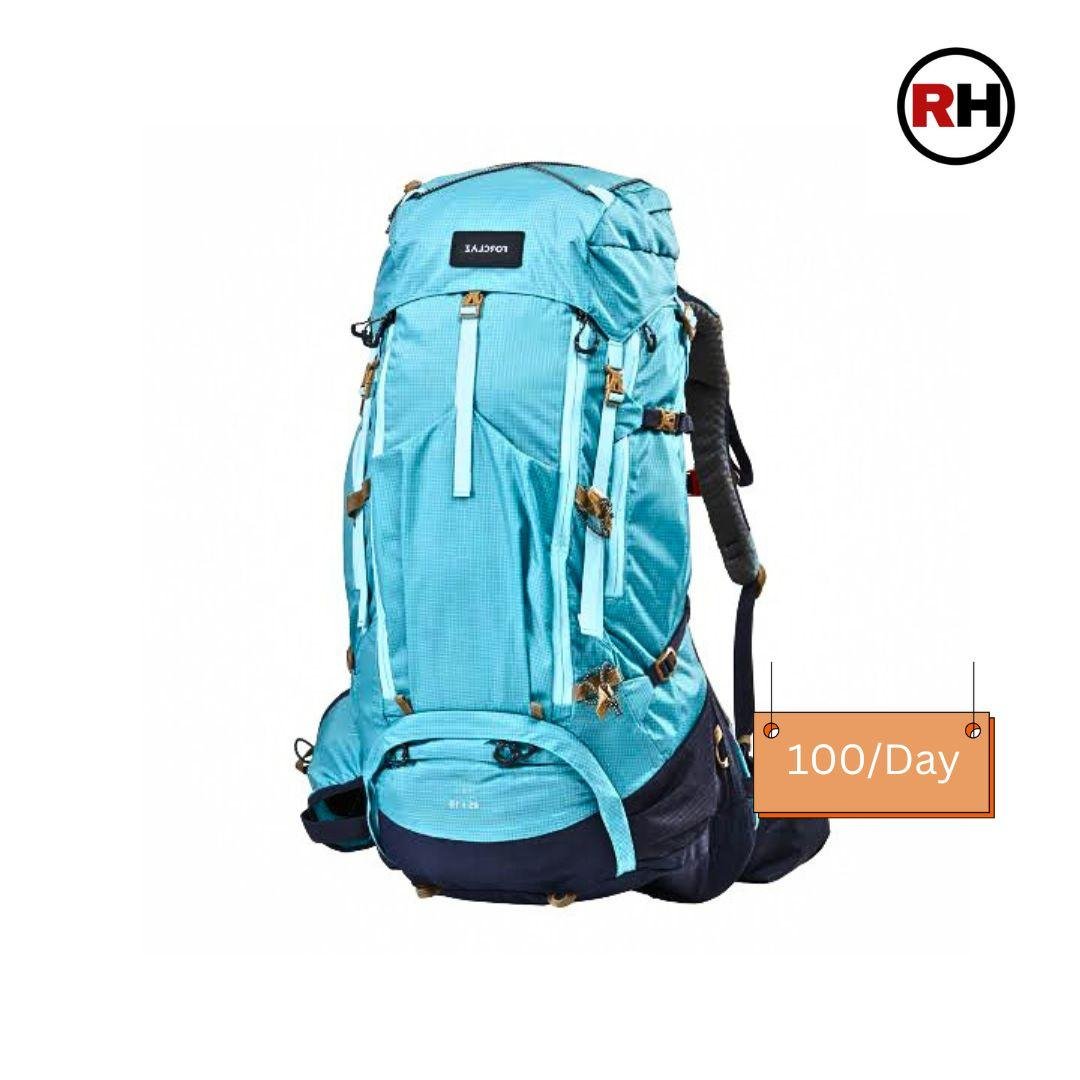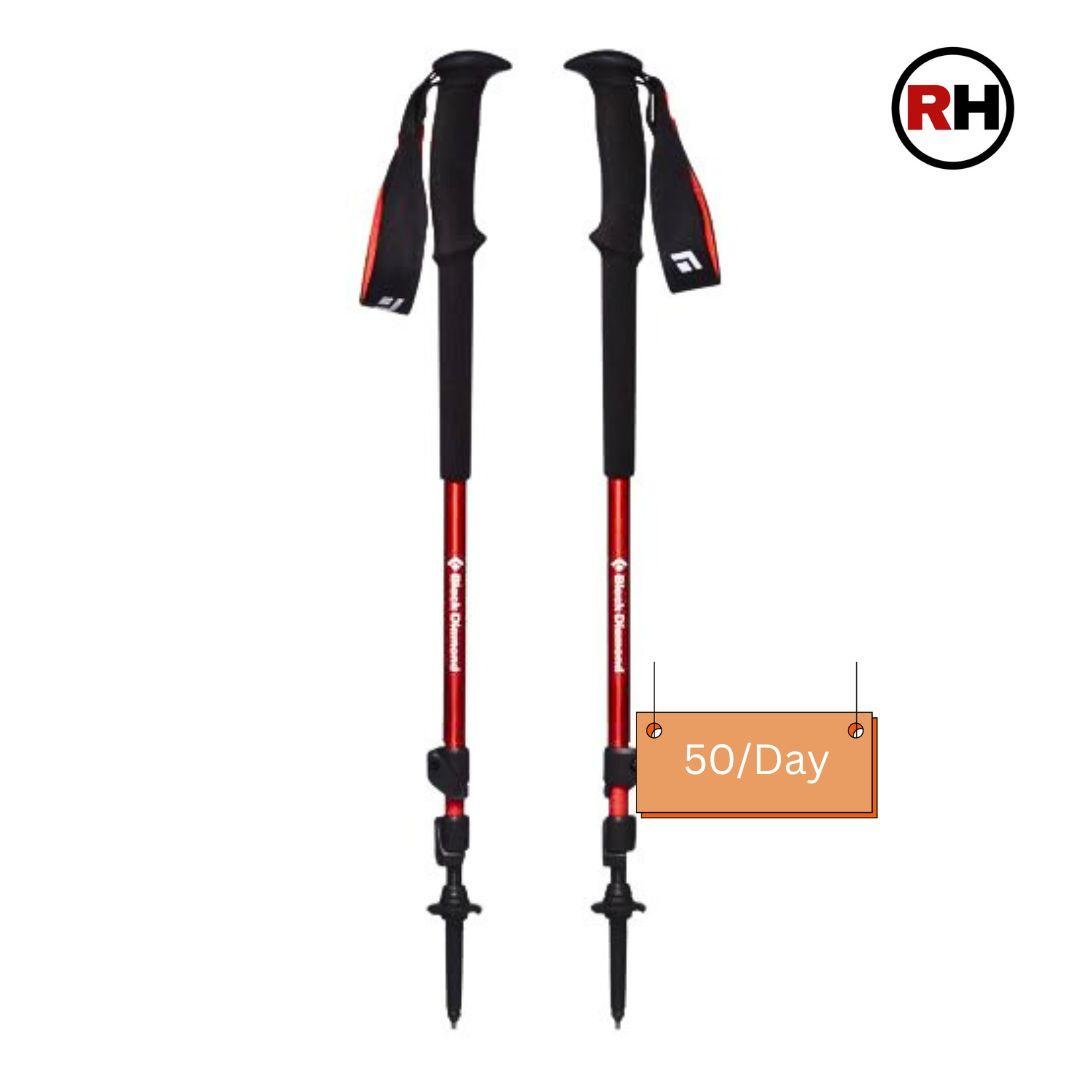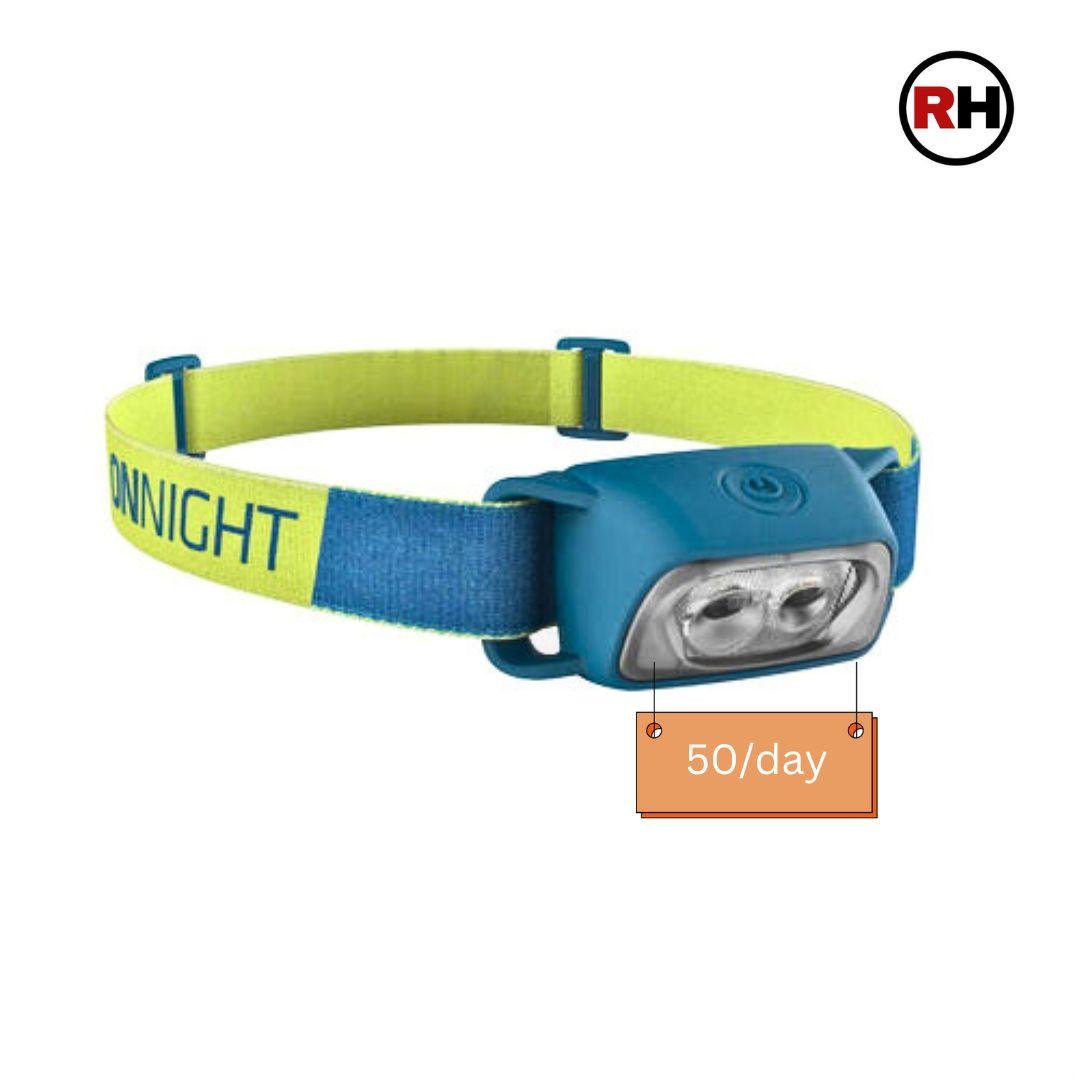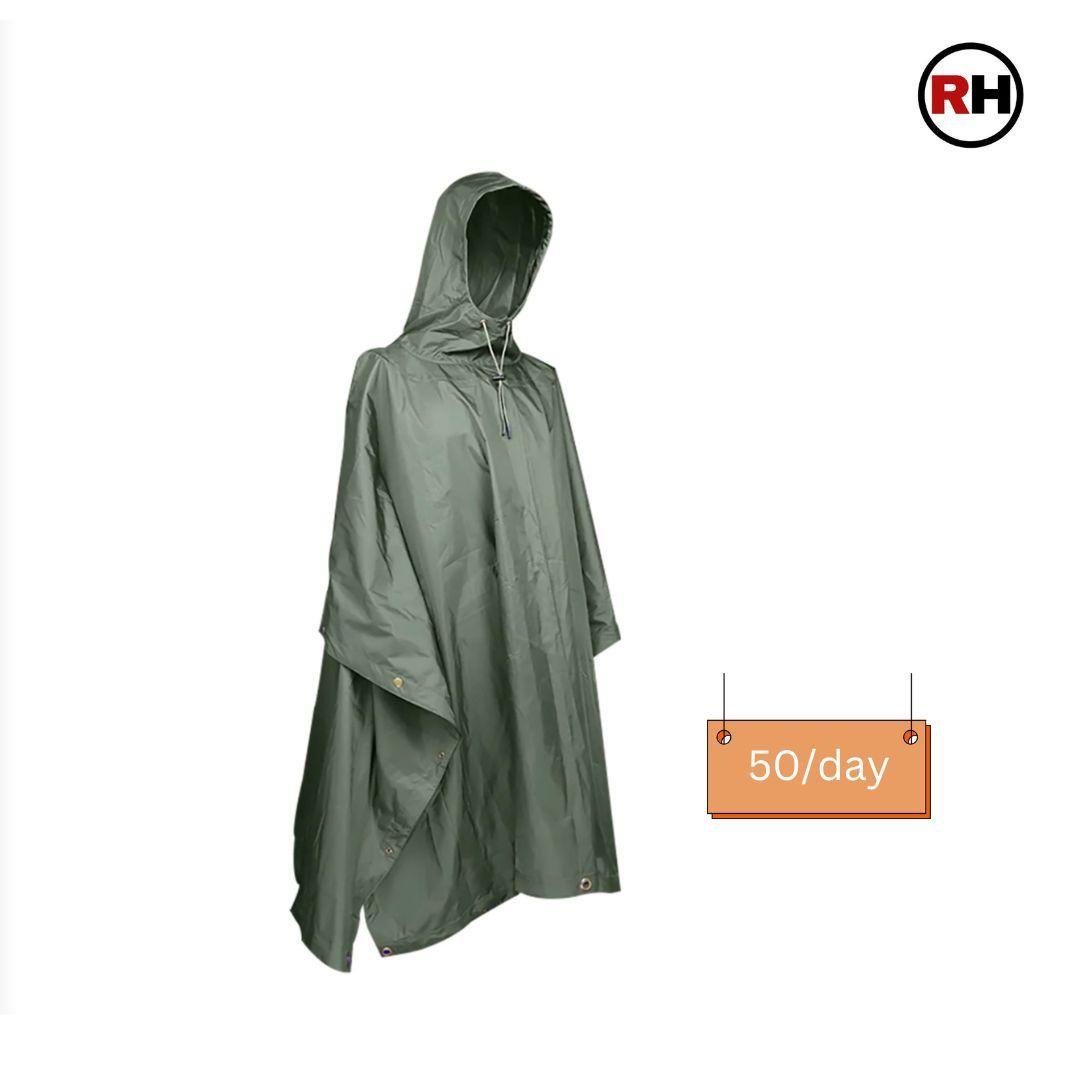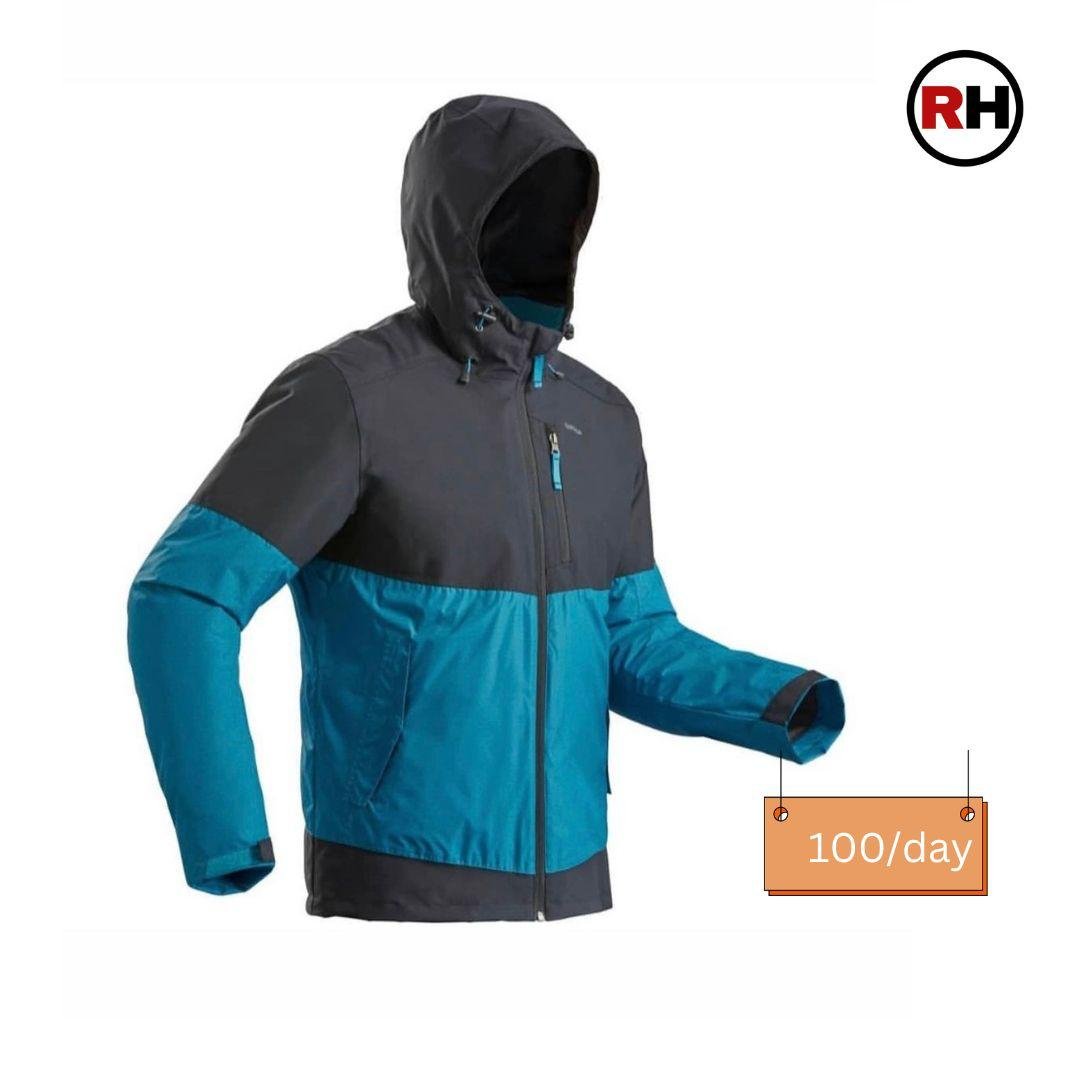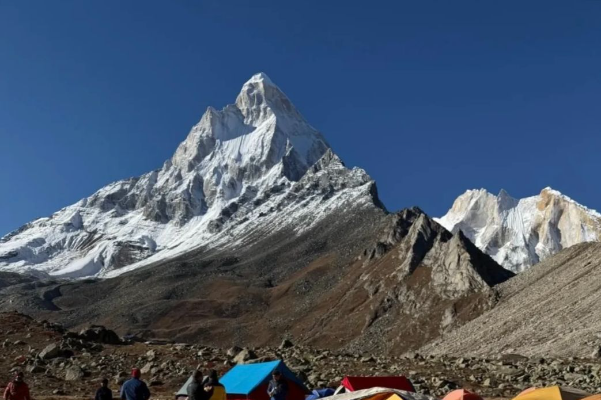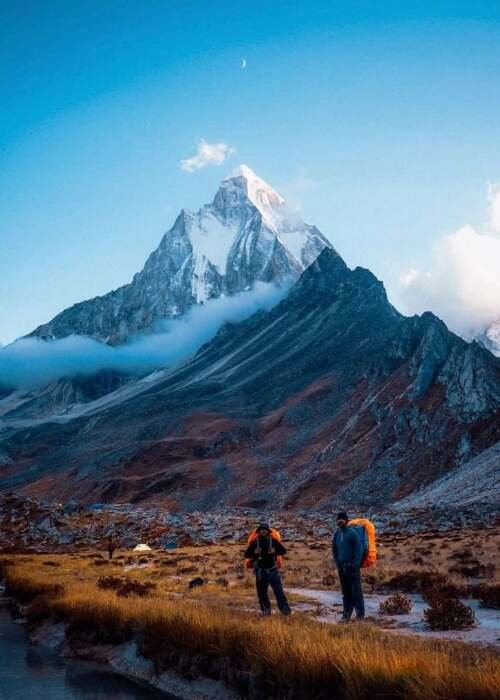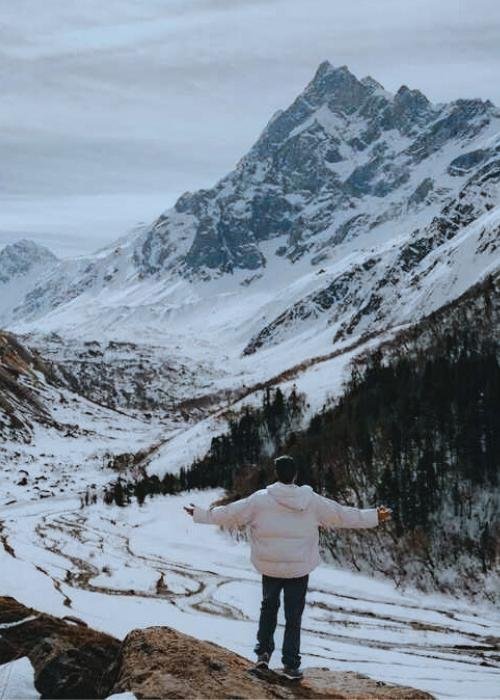Ali bedni bugyal Trek
Ali Bugyal and Bedni Bugyal are the high-altitude meadows all over Asia.
Trek Grade
Easy to Moderate
Highest Altitute
12,300 ft/3779 m
Best Season
Spring & Autumn
Trek Duration
5 Night | 6 Days
Trekking Km
30 Km
Stays
Hotel-camp
transport
Rishikesh/Dehradun
trek region
Uttarakhand
Base camp
Lohajung
Meals
veg meal
Trek Grade
Easy to Moderate
Highest Altitute
12,300 ft/3779 m
Trek Duration
5 Night | 6 Days
Base camp
Lohajung
Meals
veg meal
Stays
Hotel-camp
transport
Rishikesh/Dehradun
trek region
Uttarakhand
Trekking Km
30 Km
Trek Grade
Easy to Moderate
Highest Altitute
15,000 feet
Base camp
Rishikesh
Trek Duration
3D | 2N
Stays
Meals
transport
activities
How to Reach
Trek Grade
Trek Grade
Trek Grade
Trek Grade
Trek Grade
Ali Bedni Bugyal Overview
Hiking in the Himalayas offers more than just scaling high peaks or conquering challenging passes; it’s about immersing oneself in every aspect of mountain beauty. Ali Bedni Bugyal, as the name suggests, epitomizes vast meadows against a backdrop of majestic Himalayan peaks. This trek is a delightful stroll through verdant grasslands, where cattle graze peacefully, birdsong fills the air, and delicate wildflowers add to the enchantment. The incredible six-day journey begins at Lohajung, renowned for the Roopkund Trek, and concludes at the picturesque Wan village.
Ali Bedni Bugyal trek offers a perfect blend of natural splendor and cultural immersion. Trekkers get to witness the
stunning beauty of two expansive meadows-Ali Bugyal and Bedni Bugyal-nestled amidst the Himalayan ranges.
The trek provides panoramic views of towering peaks like Trishul and Nanda Ghunti, offering unforgettable vistas at every turn. Along the way, trekkers can interact with locals, experiencing the unique culture and hospitality of mountain villages. With moderate difficulty and gradual altitude gain, this trek is suitable for adventurers of various skill levels, promising an unforgettable journey through the heart of the Himalayas.
Ali Bedni Bugyal Trek Highlights
On Ali Bedni Bugyal trek, you would be enthralled by the number of sights and places that come along the way. Some of those key highlights are mentioned below:
Towering Mountains view From Ali Bedni Bugyal:
When the sky is clear, you will be able to catch sight of the sky touching Mount Trishul and Mount Nanda Ghunti peaks. Upon coming close to Bedni Bugyal, you would see Bedni Top and Mrigthuni Peak. Catch a sight of Chaukhamba when you get close to Khobal Top.
High Altitude Meadows:
Ali Bugyal and Bedni Bugyal are referred to as the high-altitude meadows all over Asia
Merging of Rivers on the Ali Bedni Bugyal Trek Route:
While driving, you would be amazed at the sight of river mergens (also known as sangam) at
places like Devprayag and Karnaprayag, which are two of the well-known Panch Pryag.
Forest:
Throughout the trek, you would be spellbound by the sight of trees like oak, rhododendrons, birch, walnut,
and pear.
Mythological Aspect:
Bedni Kund, which is dedicated to Hindu God Shiva, is believed to be the same place where
Shiva performed the tandava dance. On Ali Bedni Bugyal trek, you will also find many small temples that are very old and hold religious significance.
Ali Bedni Bugyal Trek Itinerary
Daily Hiking Schedule Of Ali Bedni Bugyal trek
Day 1 By Road Rishikesh to Lohajung
(250 km Drive, 9 hr approx)
By Road Rishikesh to Lohajung
(250 km Drive, 9 hr approx)- Stay: Overnight stay at the Guest House in Lohajung.
- Meal: Tea snacks, Dinner.
- Altitude: Rishikesh (1120 ft), Lohajung (7700 ft).
- Distance: 250 Km
- Time Taken: 8-9 hrs approx.
- Trek Grade: By Road
Your journey would begin at Rishikesh, and upon arriving at Rishikesh, you would meet with the driver. Who would then drive you through the picturesque views of the Himalayan Mountains. The road will wind through the mountain until you start seeing the forest line. On the way, you will be mesmerized by the sight of the Garhwal Himalayas. The scenery will remain the same till you reach the first place, which is Devprayag. Here, you could stop and be spellbound at the sight of two rivers merging (sangam): Alaknanda and Bhagirathi. You could see the different colors of the river, as Alaknanda is mudy in color while Bhagirathi is greenish blue in color.
Then the next place you would be crossing is Karnaprayag, which is one of the famous Panch Prayags. Finally, after driving for almost 8 hours, you would be amazed at the place you would be staying, as the place is surrounded by forest.
Day 2 Lohajung to Didna Village
(5km Drive, 6km Trek)
Lohajung to Didna Village
(5km Drive, 6km Trek)- Stay: Overnight stay at the Camp/homestay in Didna Village.
- Meal: breakfast, packed lunch, evening tea snacks, soup and dinner.
- Altitude: Lohagunj (7700 ft), Didna Village (8100 ft).
- Distance: By Road 5 km, By Trek 6 km.
- Time Taken: By Road 15-20 min , By Trek 4-5 hrs.
- Trek Grade: Gradual
On the second day, you would begin your travel with a short drive, followed by a trek later. On the road, you will be seeing forests, and when you begin your trek, you will be seeing rhododendron trees after crossing Raun Bagad Bridge. Once you are close to Didna Village, you will see houses made of stone, which is an old tradition. Then you would spend the night at Didna Village after having a delicious dinner.
Day 3 By Trek Didna Village to Ali Bugyal
(8km Trek, 6-7 hr approx)
By Trek Didna Village to Ali Bugyal
(8km Trek, 6-7 hr approx)- Stay: Overnight stay at Ali Bugyal in Camp.
- Meal: breakfast, packed lunch, evening snacks, shup and dinner.
- Altitude: Didna Village (8100 ft), Ali Bugyal (11,700 ft).
- Distance: 8Km
- Time Taken: 6-7 hrs approx
- Trek Grade: Gradual to Moderate
On Day 3, you will leave Didna behind and begin to walk through the stunning landscape of Tolpani Forest, which is dotted with old oak trees. On the way, you would be seeing local shepherds’ huts along with shepherds grazing their sheep, and as you started climbing, you would be seeing the forest of Birch. You will get to the Khobal top, where you will admire the peaks of Chaukhamba, Trishul, and Nanda Ghunti. Once you catch a glimpse of the peaks, you will then walk further and start seeing Ali Bugyal, where green grasslands are spread across the hill. Walk through the meadows and enjoy the scenery around you till you reach the camping site of Abin Kharak, which is the highest point of the trek.
Day 4 Ali Bugyal to Bedni Bugyal
(4+4km Trek,6-7 hr approx)
Ali Bugyal to Bedni Bugyal
(4+4km Trek,6-7 hr approx)- Stay: Overnight stay at Ali Bugyal / Patar Nachauni in Camp.
- Meal: breakfast, packed lunch, snaks, soup and dinner.
- Altitude: Ali Bugyal (11,700 ft), Bedni Bugyal (12,300 ft).
- Distance: 4+4 Km
- Time Taken: 6-7 hrs approx
- Trek Grade: Moderate to Difficult
Day 4th marks the day when you will walk through the Bedni Bugyal. From the top of Bedni Top, you will be close to Mount Nanda Ghunti, Trishul, and Mrigthuni. On the trail, you would pass through Bedni Kund and Nanda Devi Temple, which are very auspicious places. At the Bedni Kund, you could see the reflection of Mount Trishul, and you could also see flowers in the middle of the meadows. Dolidar, which marks the end of Bedni Bugyal Trek and the start of the tree line. Once you have enjoyed the scenic vistas at the top of Bedni Bugyal, you will begin your return journey to Ali Bugyal or Patar Nachauni. After walking through the huge tree forest, you will reach the campsite.
Day 5 Ali Bugyal to Wan, By Road Wan to Lohajung
(12 Km Trek/6-7 hr approx, 13 km Drive)
Ali Bugyal to Wan, By Road Wan to Lohajung
(12 Km Trek/6-7 hr approx, 13 km Drive)- Stay: Overnight stay at the Guest House in Lohajung.
- Meal: breakfast, packed lunch, sancks, soup and dinner.
- Altitude: Ali Bugyal (11,700 ft), Wan (8000 ft), Lohajung (7700 ft).
- Distance: By Road 5 km, By Trek 6 km.
- Time Taken: By Trek 6-7 hrs approx., By Road 1 hr.
- Trek Grade: Gradual
This is the last day of your trek; if you look carefully, you might recognize some walnut and pear trees. The trail goes downhill through the forest till you pass the Nile Ganga River by bridge. As you come close to Wan village, you will see thousands of years-old Cypress trees, which look amazing. From Wan Village, you will then begin your road trip towards Lohagunj, which takes just 1 hour. At Lohagunj, you will then be spending the night, this will be your last day of sleeping near the forest and mountains.
Day 6 By road, Lohajung to Rishikesh
(250km Drive/9 hr approx)
By road, Lohajung to Rishikesh
(250km Drive/9 hr approx)- Meal: Tea, biscuit
- Altitude: Lohajung (7700 ft), Rishikesh (1120 ft)
- Distance: 250 km
- Time Taken: 8-9 hrs approx
- Trek Grade: By Road
On Day 6, you will be driving from Lohajung and back to Rishikesh on the same route you came by. If you are one of those people who are adventure seekers and like to be in nature in its most majestic state, this is the best trek for them.
- Stay is included on all days of the trek (from Lohajung to Lohajung). You will be staying in tents on a double sharing basis.
- Transport charges from Rishikesh to Lohajung and return.
- All meals from dinner at Lohajung on Day 1 to tea and coffee on Day 6 are included. Meals are simple, nutritious and vegetarian.
- All the trek equipment will be included like a sleeping bag, kitchen & dining tent, utensils, mattress, tent, toilet tent, and crampon (if needed).
- First aid medical kits, oxygen cylinder and stretcher.
- All fuel charges, toll taxes and needed forest entry fees along with permits.
- Mountaineering qualified and professional trek leader, guide, cook and support staff.
- GST 5% (it is Mandatory)
- Any emergency evacuation charges
- Any services that are not mentioned in the cost inclusion section.
- Any Meals/accommodation beside the itinerary or not mentioned in the program.
- Mules or porters to carry personal luggage.
Best Time to do the Ali Bedni Bugyal Trek:
The best time to do the Ali Bedni Bugyal trek is during spring and autumn. Here’s a season-wise breakdown:
- Ideal time with mild temperatures, clear skies, and blooming flowers.
- Best visibility of the mountains and lush green meadows.
- Comfortable trekking conditions with moderate temperatures.
- In springtime, the mountains reveal their sharpest and clearest vistas, with the air remaining crisp and pristine from the winter months.
Autumn (September to November):
- Another excellent time with clear skies, cool temperatures, and vibrant autumn colors.
- Stunning views of the mountains and pleasant weather for trekking.
- Trails are well-defined and dry, making for enjoyable hiking experiences.
How to Reach For Ali Bedni Bugyal Trek?
- By Bus: From Delhi, a regular bus service operates to Rishikesh. The main bus station in Delhi is ISBT Kashmere Gate, offering both AC and non-AC buses for the journey to Rishikesh.
- By Train: To reach Rishikesh from Delhi by train, you’ll first need to travel to Haridwar. From there, you can take a bus to Rishikesh, which is 35 km away. Haridwar serves as a major railway junction connecting Delhi to Rishikesh.
- By Air: The closest airport to reach Rishikesh by flight is Jolly Grant Airport, located approximately 25 km from the city. Regular flights from Delhi to Rishikesh are available. If you plan to arrive by flight, it’s advisable to schedule your arrival one day in advance.
What to Pack For Your Ali Bedni Bugyal?
As a trekking, adventure, and travel company, we often receive inquiries from our trekkers, and one of the most frequent questions is about packing list for the ali bedni bugyal trek. Sometimes, it can be challenging to provide detailed explanations, so we’ve compiled a comprehensive packing list that will be beneficial for all trekkers heading to the Himalayas. When preparing for a trek and organizing your gear, it’s helpful to follow a systematic approach. You can start either from head to foot or foot to head, ensuring you cover all essentials and minimize the risk of forgetting important items. So, take it step by step and pack accordingly.
Footwear and Backpack
✅Trekking shoes with ankle support
✅Backpack with rain cover
✅Daypack with rain cover
Warm Layers and Clothing
✅Warm layers (Padded jackets )
✅3 layers for spring, summer, and monsoon treks (1 woolen sweater, 1 fleece, 1 padded jacket)
✅4 layers for autumn treks (1 woolen sweater, 2 fleece, 1 padded jacket)
✅5 layers for winter treks (1 pair of thermals, 1 woolen sweater, 2 fleece, 1 padded jacket)
✅3 Collared T-shirts (Wear one, carry two)
✅2 quick-dry trek pants (Wear one, carry one)
Accessories
✅Sunglasses
✅Sun cap, preferably with flaps
✅Waterproof gloves
✅Balaclava
✅Woolen socks (2-3 pairs od Dry + 1 pair of Woolen))
✅Headlamp
✅Trekking pole
✅Rain Jacket + pants/poncho
Toiletries
✅Suncreen
✅Moisturizer
✅Light towel
✅Lip balm or vaseline
✅Toilet paper (wet wipes are strictly not allowed on our treks)
✅Toothbrush
✅Toothpaste
✅Reusable plastic covers (for used clothes)
✅Trash bags (Carry out all your waste and leave no trace behind)
FAQs About Ali Bedni Bugyal Trek
When is the best time to do the Ali Bedni Bugyal Trek?
The best time to do the Ali Bedni Bugyal Trek depends on what kind of experience you’re looking for, but generally, the most ideal months are from March to June and September to November. During spring (March to April), the trail is surrounded by blooming rhododendrons and early wildflowers, while patches of snow still linger on the higher slopes, offering a beautiful contrast. In summer (May to June), the meadows turn a vibrant green, covered with a carpet of alpine flowers, and the weather is generally pleasant and clear—perfect for enjoying the stunning views of peaks like Trishul and Nanda Ghunti. After the monsoon, autumn (September to November) brings clear skies, golden meadows, and crisp mountain air. This season is particularly loved by photographers and those looking for solitude, as the post-monsoon landscape is especially breathtaking. Winter (December to February) transforms the region into a snowy wonderland, ideal for experienced trekkers who are comfortable with cold conditions and snow-covered trails.
Is prior trekking experience required for the Ali Bedni BugyalTrek?
While prior trekking experience is not mandatory, it is recommended to have a basic level of fitness and stamina. Ali Bedni Bugyal Trek is considered an easy to moderate trek, making it suitable for beginners who are physically active and can walk for several hours a day over hilly terrain.. With proper preparation, guidance, and a positive mindset, even first-time trekkers can comfortably complete the journey. In summary, you don’t need trekking experience, but you do need to be physically prepared. With basic training and the right gear, beginners can comfortably enjoy the beauty of the Ali Bedni Bugyal trek.
How difficult is the Ali Bedni Bugyal Trek?
The Ali Bedni Bugyal trek is generally rated as a moderate trek, making it suitable for fit beginners as well as experienced trekkers. It is not technically difficult, but it does require a reasonable level of physical fitness, stamina, and mental readiness.
Here’s a breakdown of the difficulty:
Trail Conditions
● The trail involves gradual ascents and descents, mostly through forests, open meadows, and some rocky patches.
● No climbing or scrambling is required—just long walks.
● The path is well-defined, though it can be slippery during the rainy season or icy in winter.
Altitude
● The highest point of the trek is around 11,500 feet (3,500 meters).
● While it’s not extremely high, some people may feel mild symptoms of altitude (like shortness of breath or fatigue), especially if not acclimated properly.
Trek Duration and Daily Walks
● The trek usually takes 5 to 6 days, depending on the route.
● You’ll be walking 5–7 hours a day, covering 8–10 km on average.
● Some days involve steeper climbs, but most of the ascent is gradual.
Weather Factors
● Weather can change quickly in the mountains, so cold, wind, and rain are potential challenges.
What is the duration and how long is the Ali Bedni Bugyal Trek?
The Ali Bedni Bugyal trek is a 5 to 6-day trek, and the total walking distance is around 31 kilometers. Each day, you will walk about 5 to 6 kms, which takes around 5 to 7 hours depending on your pace and the trail conditions. The trek usually starts from a village called Lohajung, which is the base camp. From there, you walk through beautiful forests, peaceful villages, and wide green meadows to reach Ali Bugyal and Bedni Bugyal, which are large grassy high-altitude meadows. The highest point of the trek is around 12,500 feet. You don’t need to be a professional trekker to do this, but you should be physically fit and ready to walk long distances every day. The trail is not too steep or dangerous, so it’s good for beginners too. Overall, this trek offers a perfect mix of nature, mountain views, and a peaceful atmosphere, all in about 6 days.
Will there be electricity at the campsites on the trek?
No, there is no electricity at the campsites on the Ali Bedni Bugyal trek. The trek passes through remote mountain areas and high-altitude meadows where there are no permanent settlements or power lines. Campsites are typically set up in open areas or near forest clearings, and all essential equipment (like tents, sleeping bags, food, etc.) is carried by the trekking team. However, occasional power outages can happen in remote areas, so it’s still a good idea to carry a power bank or spare batteries as a backup
Is Ali Bedni Bugyal Trek safe?
Is a mobile network available on the Ali Bedni Bugyal Trek?
Mobile network is mostly not available during the Ali Bedni Bugyal trek. You may get some signal at Lohajung, the starting point, where Jio, Airtel, or BSNL might work. But once you start the trek, there is usually no network in places like Didna, Ali Bugyal, or Bedni Bugyal. Sometimes, a very weak signal may come at higher points, but it’s not reliable. So, you should inform your family and friends before the trek that you will be out of network for a few days. It’s also a good idea to keep your phone on airplane mode to save battery and carry a power bank. Sharing the contact details of your trek coordinator can also help ensure important updates are communicated when needed.
Ali Bedni Bugyal Trek Package
Lohajung to Lohajung
Add ons
Total: ₹
Dates & Availability








